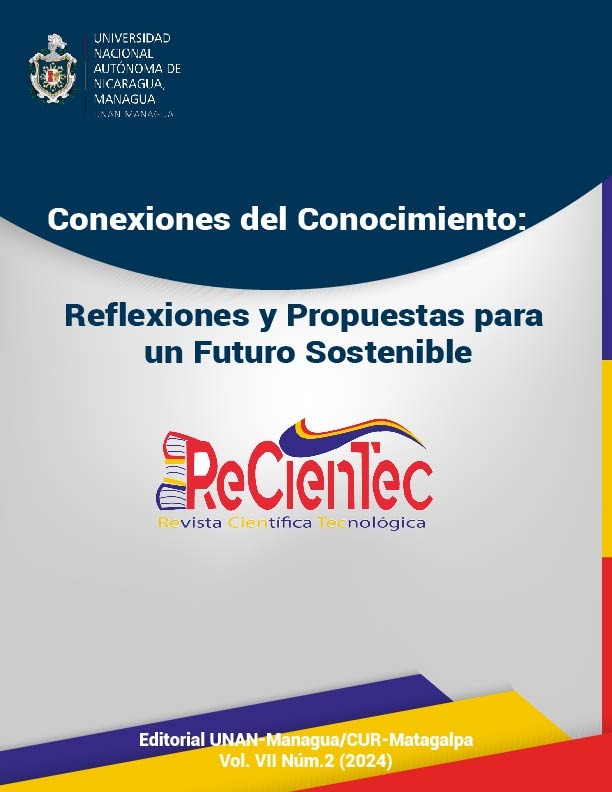Effort: The Cornerstone of Learning in the Information Era
Keywords:
effort, conscious, learning, englishAbstract
Individual effort is an indispensable catalyst for learning, especially in resource-constrained environments. This essay explores the evolution of English language learning in the context of teacher training at UNAN-Managua, CUR-Matagalpa, using a retrospective and prospective lens to analyze how the evolution of technological resources has transformed the landscape of language learning. It is argued that, despite the abundance of resources available today, the learner remains the primary actor in their own learning. The critical reflection throughout the essay aims to highlight the importance of learner autonomy and the need to develop skills to make the most of available resources.
Downloads
References
Ausubel. (1980). Psicología Educativa. Un punto de vista cognoscitivo.México: 4a. Ed. Trillas disponible en: http://www.educainformatica.com.
Bernard, J. (1995). Estrategias de estudio en la universidad. España: Editorial Síntesis.
Cabero, J. (2014). Impacto de las nuevas tecnologías de la información y la comunicación en las organizaciones educativas. En enfoques en la organización y dirección de instituciones educativas formales y no formales. Grupo Editorial Universitario.
Coll, César. (2003). Esfuerzo, ayuda y sentido en el aprendizaje escolar. Aula de Innovación Educativa. 33-47.
Enebral, J. ( 2006). Formación continua de directivos-Autodidactismo (autodidaxia).
Martínez, P., Vergara, J. y Kim-Galvez, M. (2019). Uso de las TIC´s en el Aprendizaje del Inglés. Vinculatégica EFAN. 5. 1508-1516. 10.29105/vtga5.2-761.
Pozo, I. (1996). Aprendices y Maestros. Madrid: Alianza
Roa Rocha, J. C. (2024). Factores que inciden en el aprendizaje de Inglés en estudiantes de FAREM-Matagalpa: estudio de caso. Revista Científica Estelí, (48), 129–144. https://doi.org/10.5377/farem.v12i48.17526
Roa Rocha, J. C. (2021a). La educación superior y el COVID-19: Experiencias desde mi perspectiva como docente. Revista Multi-Ensayos, 7(13), 26–32. https://doi.org/10.5377/multiensayos.v7i13.10749
Roa Rocha, J. C. (2021b). Importancia del aprendizaje significativo en la construcción de conocimientos. Revista Científica Estelí, 63–75. https://doi.org/10.5377/farem.v0i0.11608
Riera, L. (2013). El principio del mínimo esfuerzo y su relación con el rendimiento académico: una experiencia de una investigación acción-participativa (tesis de maestría). Universidad Pedagógica Nacional, Francisco Morazán.
UNAN-Managua (2011). Modelo Educativo, Normativa y Metodología para la Planificación Curricular 2011.
Universia. (29 de 07 de 2015). Universia. Obtenido de Universia: http://noticias.universia.edu.ve/
Vinuesa, J. (2002). La cultura del esfuerzo. Revista de educación, 329, pp.207-2017.




